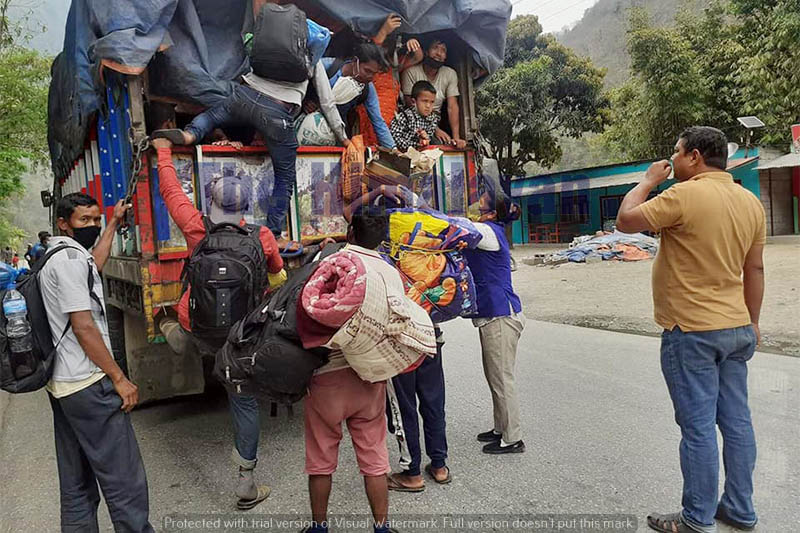Reverse migration: Govt told to arrange transport for those trudging back home
Kathmandu, April 17
The Supreme Court today issued an interim order asking the government to safely transport stranded poor people to their hometowns after conducting rapid tests on them. Daily wagers and poor people, who have lost shelter and jobs in urban centres due to the extended nationwide lockdown, have been walking for hours to reach home, risking their lives.
The order was issued by a division bench of justices Ananda Mohan Bhattarai and Sapana Pradhan Malla in response to a writ petition filed by Senior Advocate Prakash Mani Sharma and others against the Office of the Prime Minister and Council of Ministers and others.
The apex court observed that the government’s primary responsibility was to transport those who had left cities for their hometowns due to lack of shelter and food to their homes safely.
The court ordered the government to conduct rapid tests on the stranded people and transport healthy people to their houses free of cost.
The court also told the government to isolate or quarantine the stranded people if they were suspected of having contracted COVID-19.
The government was told to give priority to women, elderly people, children and differently-abled people while transporting stranded people to their destinations.
As per the apex court order, local levels will have to collect names and addresses of those returning from urban centres and put them in quarantine.
The court also asked the government to carry out psycho-social counselling for those who had lost jobs due to the nationwide lockdown.
The SC ordered the government to make available seeds and fertilisers in local markets so that those returning home could contribute to the rural economy.
It asked the government to arrange additional health professionals and set up ICU beds in district hospitals to treat those testing positive for COVID-19.
The SC ordered the government to increase the number of PCR (polymerase chain reaction) machines in densely populated urban centres and to follow the World Health Organisation’s criteria while procuring medical equipment and medicines.
The SC also asked the government to ensure that those returning from urban centres would not face any discrimination.
The apex court observed that the government could win its fight against COVID-19 pandemic only if it worked in a coordinated manner and people followed the government’s directive to maintain social distancing to avoid the risk of COVID-19 infection.
The SC added that people’s right to life, housing, health and employment had been adversely hit due to the ongoing nationwide lockdown.
A version of this article appears in e-paper on April 18, 2020, of The Himalayan Times.






